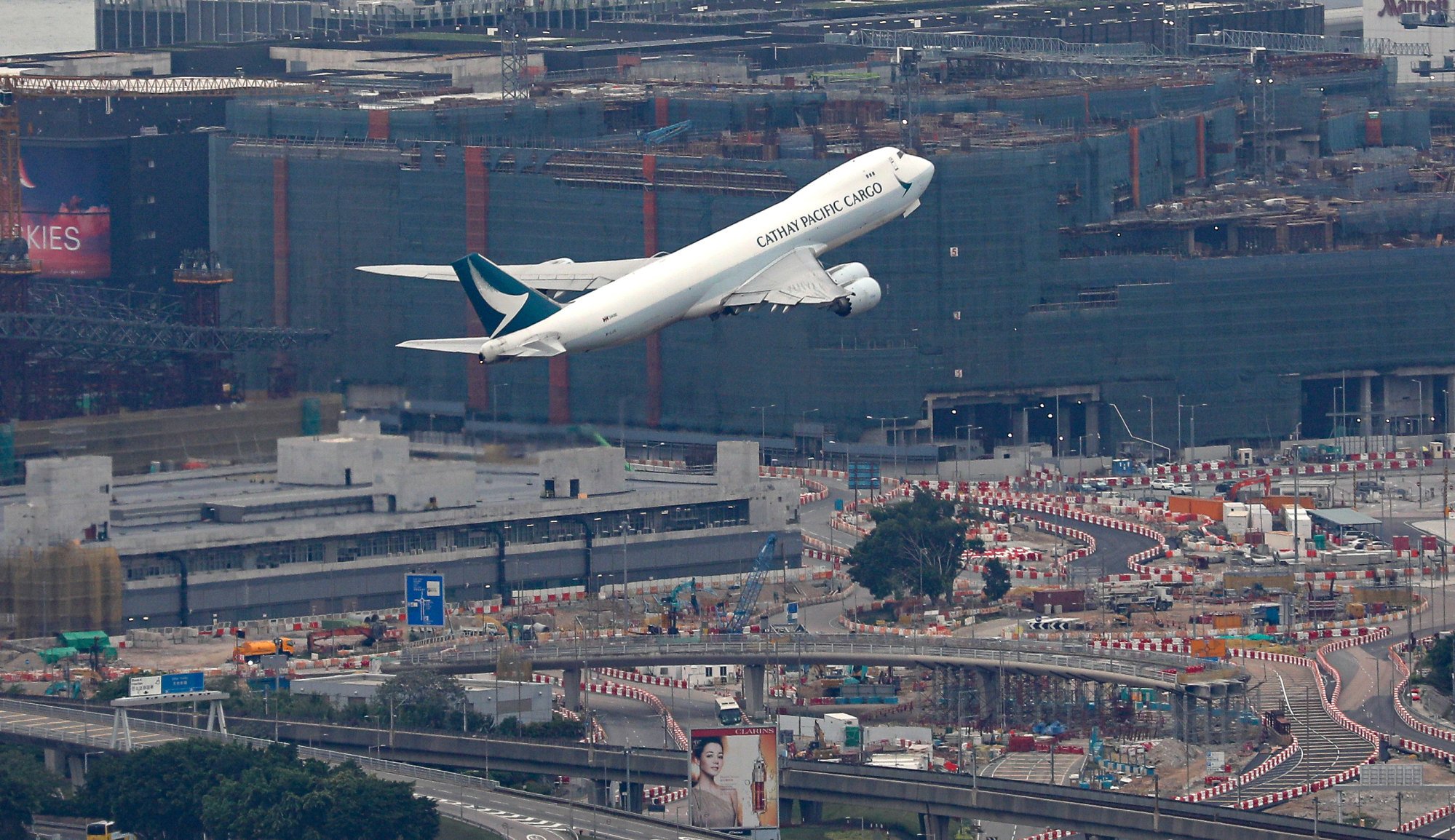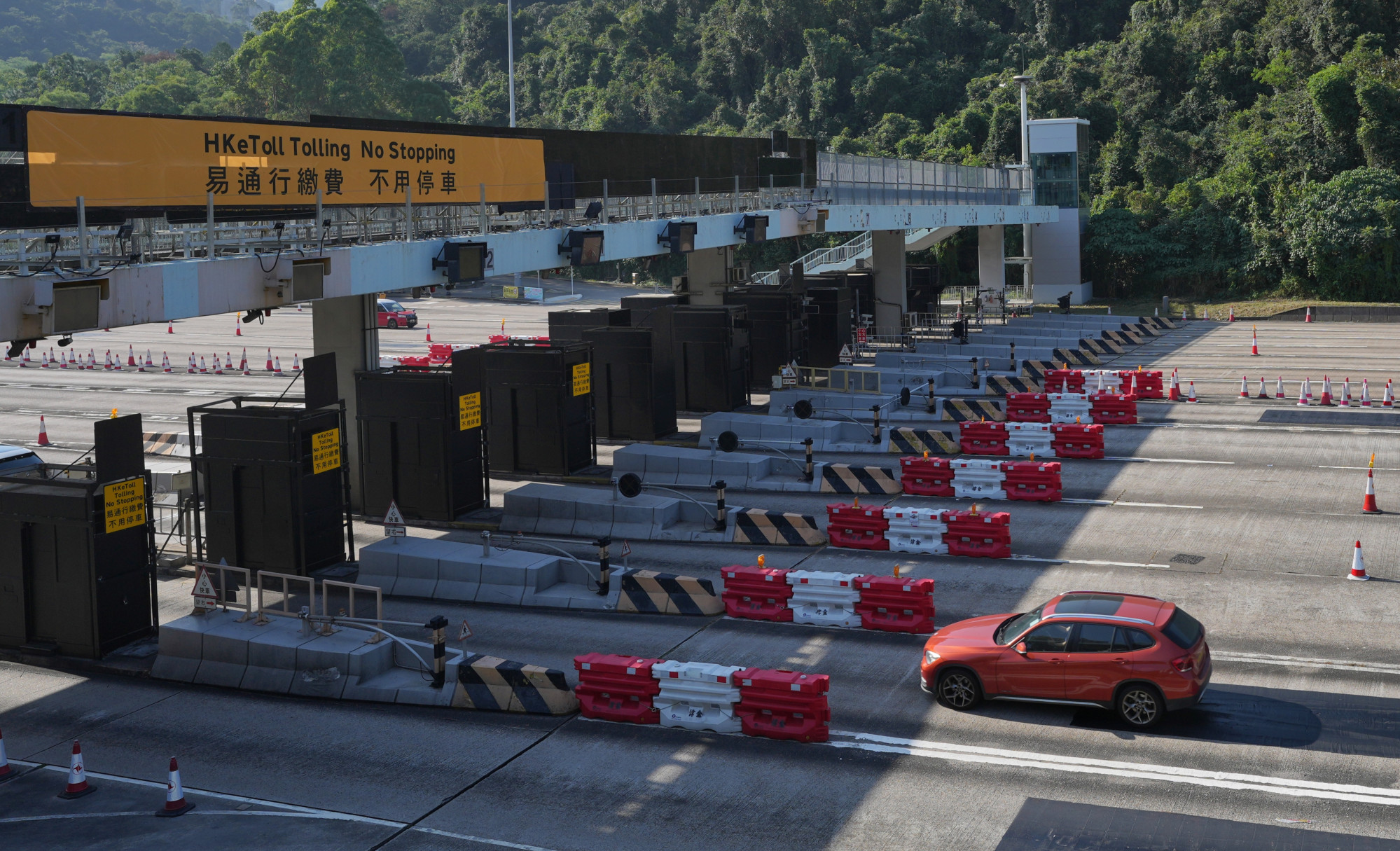
PayCargo picks Hong Kong as first point of entry to grow logistics payment systems in Asia, counts Cathay among clients
- US firm teams up with local partner Autotoll International to offer electronic payment systems for the logistics industry
- Cathay Cargo Terminal is first among Hong Kong terminal operators to adopt the payment systems
PayCargo, a US logistics payment platform operator backed by private equity firm Blackstone, is making Hong Kong its “first point of entry into the Asian market,” banking on the city’s appeal as the biggest air cargo hub in the region for growth.
The Florida-based firm is joining hands with local firm Autotoll International to offer its secure solutions for the logistics industry, making the payment process more efficient and help speed up the release of imported goods. Cathay Cargo Terminal is the first among its local peers to employ the system.
“There are good reasons for the decision,” Adrie Reinders, CEO of PayCargo, said in Hong Kong on Monday. “Hong Kong is not only the largest air cargo hub, but also a central nexus where numerous multinational businesses have established their regional offices” making the city “the perfect launch pad” for the firm, he added.
Autotoll, its local strategic partner which developed electronic toll collection systems in Hong Kong in 1998, has been crucial in helping PayCargo establish its presence, the firm said. Hong Kong will continue to be the leading logistics hub in the region, it added.

“As long as the business and transactions are well operated in Hong Kong, we are more than willing to invest in Hong Kong to grow our business”, said Morgan Law, commercial director for Asia at PayCargo.
PayCargo has raised US$290 million from investors since 2020, Law added, including US$130 million from funds managed by Blackstone in June 2022. It has partnered with more than 5,000 logistics vendors, including major air, land, and sea carriers such as Mediterranean Shipping, Ocean Network Express, ZIM, Maersk, Evergreen and Yang Ming.
Cathay Cargo Terminal, operated by the Swire Group’s Cathay Pacific Airways, disclosed last week that it has adopted PayCargo’s business-to-business digital payment platform for import cargo collection.
The platform offers choice and convenience for freight forwarders and their agents, said Mark Watts, chief operating officer of the terminal operator. “This marks yet another milestone in our digital journey after enabling electronic airway bills and introducing electronic shipment release forms at our terminal, reaffirming our commitment to digital leadership.”

For Autotoll, teaming up with PayCargo is aligned with Hong Kong’s efforts to promote the intelligent transformation of the logistics sector, deputy CEO Karel Au said.
“Our industry coverage is very similar to PayCargo,” he said. “We have the connections, we also have the business partnerships which should be able to help PayCargo build a business in Hong Kong. That is the synergy.”
To keep pace with Hong Kong’s smart city blueprint, Autotoll has branched out of the electronic toll collection system since 1998 to offer multiple smart solutions, such as transport and surveillance systems and fleet management solutions.
This will also help the trade and logistics industry to grow. The sector accounts for more than a fifth of GDP and employs around one-sixth of the city’s total workforce, according to the plan.


